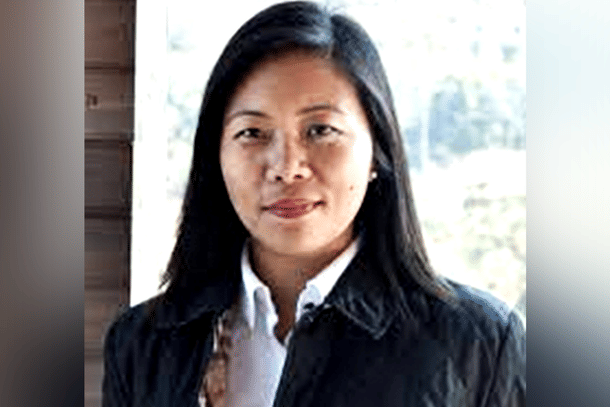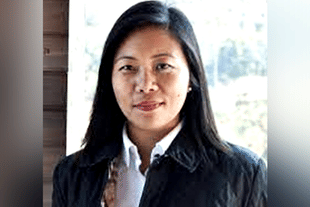Politics
As Hekani Jakhalu Becomes The First Woman MLA In Nagaland, Read About The State's Only Two Women MPs
Swarajya Staff
Mar 02, 2023, 05:00 PM | Updated 05:00 PM IST
Save & read from anywhere!
Bookmark stories for easy access on any device or the Swarajya app.


Hekani Jakhalu will be the first woman MLA of Nagaland.
The Nationalist Democratic Progressive Party (NDPP) candidate was declared elected from the Dimapur-III constituency.
She beat Azheto Zhimomi, the Naga People's Party candidate and the current incumbent by 1,536 votes.
Out of 183 candidates in the fray for 60 seats, there were only four women. Jakhalu was one of them.
Hekani Jakhalu Kense is a US-educated lawyer who is a highly regarded social entrepreneur. She founded YouthNet, a non-profit aimed at helping youth acquire education and develop life skills, and is a recipient of ‘Nari Shakti Puraskar’.
Why has Nagaland never elected women MLAs?
Politics has always been regarded as an exclusive male preserve in Nagaland.
Even though female literacy rate is high in Nagaland, the society is patriarchal.
Many Naga women are doctors, engineers, lawyers, teachers and accomplished professionals, and women generally do not face any discrimination at workplaces or in institutions.
But Naga traditional law and norms rule out women’s participation in public affairs and politics. Women have always been kept out of traditional village councils and far from being included in these councils, women are not even allowed to speak and voice their opinions in council meetings.
Women’s rights activists complain that Naga traditional institutions that govern the Nagas’ social and political lives have never allowed women in decision-making roles.
Naga traditional bodies and other groups had thwarted the state government’s attempts to implement the 74th Amendment Act of the Constitution that mandates 33 per cent reservation for women in elected urban local bodies.
These traditional institutions and other organisations of Nagaland contended that Article 371A of the Constitution safeguarded Nagaland’s customary cultural, religious and traditional practices and, hence, Nagaland should remain exempted from the 74th amendment.
So intense was the opposition by pressure groups in Nagaland to reservation for women in urban elected bodies that in September 2012, the Nagaland Assembly passed a resolution seeking exemption of the state from laws decreeing reservation for women in elected bodies.
The Nagaland Assembly revoked this resolution in November 2016 and voted to allow reservation for women in municipalities and town committees.
Following this revocation, the state government issued a notification for holding of municipal elections with 33 per cent reservation for women.
But that triggered violent protests that brought normal life to a standstill for three weeks from end-January 2017 to mid-February 2017.
Government offices and vehicles were torched, shutdowns imposed and two people also lost their lives. The state government was forced to retract its order for holding municipal polls.
The stalemate continued and it was only after the NDPP-BJP government came to power in the state in 2018 that dialogues with groups opposing women’s reservation were initiated.
Many rounds of talks were held since then with various social, traditional and religious bodies.
The state received a jolt last year when the Supreme Court slammed the state government for dragging its feet over holding urban body polls with 33 per cent seats reserved for women.
A two-judge bench of the apex court passed scathing remarks against the state government in July last year, saying it was “shameful” for a welfare state to “defeat the rights of women”.
The Supreme Court was hearing a petition filed by People’s Union of Civil Liberties (PUCL) and Naga women’s rights activist Rosemary Dvuchu. Stung by the apex court’s observations, the state government hastily initiated the process of holding polls.
The Scenario Now
In 2018, too, five women candidates were in the fray, but all of them lost. They were Awan Konyak (NDPP), Rakhila (BJP), Wedgie-u Kronu (NPP), Rekha Rose Dukru (Independent), and Dr K Mangyangpula Chang (NPP).
At many public meetings to canvass support for his party’s lady candidates, Chief Minister Rio this time has called upon Nagas to “change their mindset that women cannot be in decision-making bodies”.
The women MPs
Though Nagaland has never had a woman MLA, it has two women Members of Parliament (MPs). Rano Mese Shaiza contested the 1977 Lok Sabha elections from the lone parliamentary constituency in the state and defeated the then sitting chief minister Hokishe Sema of the Congress.
But Shaiza belonged to a very prominent family — her father Sevilie Iralu was the state’s most prominent medical practitioner and her mother, Vitulie-u Iralu, was the elder sister of the famous Naga nationalist Angami Zapu Phizo who founded the Naga separatist movement.
Shaiza was an active politician and played an important role in advancing the Naga Peace Accord. She was instrumental in arranging a meeting between the then prime minister Morarji Desai and her uncle Phizo. That meeting laid the ground for eventual peace in Nagaland.
A full 45 years after Shaiza became a member of the Lok Sabha, another lady from Nagaland was elected to Parliament. S Phangnon Konyak, the president of the BJP Mahila Morcha in Nagaland, was elected to the Rajya Sabha in March 2022.
And now, in Hekani Jakhalu, Nagaland has its first woman MLA.





